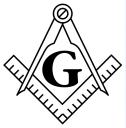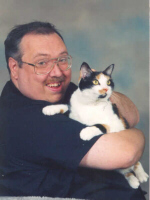Catholics Prohibited from Being Masons
Here is the current Church legislation on Freemasonry (the Masonic Lodge):
Declaration on Masonic Associations
Quaesitum est (English Translation)
The Sacred Congregation for the Doctrine of the Faith
November 26, 1983
It has been asked whether there has been any change in the Church's decision in regard to Masonic associations since the new Code of Canon Law does not mention them expressly, unlike the previous code.
This sacred congregation is in a position to reply that this circumstance is due to an editorial criterion which was followed also in the case of other associations likewise unmentioned inasmuch as they are contained in wider categories. Therefore, the Church's negative judgment in regard to Masonic associations remains unchanged since their principles have always been considered irreconcilable with the doctrine of the Church and, therefore, membership in them remains forbidden. The faithful, who enroll in Masonic associations are in a state of grave sin and may not receive Holy Communion. It is not within the competence of local ecclesiastical authorities to give a judgment on the nature of Masonic associations which would imply a derogation from what has been decided above, and this in line with the declaration of this sacred congregation issued Feb. 17,1981.
In an audience granted to the undersigned cardinal prefect, the Supreme Pontiff John Paul II approved and ordered the publication of this declaration which had been decided in an ordinary meeting of this sacred congregation.
Rome, from the Office of the Sacred Congregation for the Doctrine of the Faith, Nov. 26, 1983.
Cardinal Joseph Ratzinger
Prefect Father Jerome Hamer, O.P. Titular Archbishop of Lorium
NOTE: Masonic Lodges particularly in the 18th and 19th centuries were often strongly anti-Catholic, particularly in Catholic countries where on several occasions they were involved in the assassination of Catholic leaders, and the Church then prohibited Catholics from being members. The danger has become less (or the Church has gained new enemies not connected with Freemasonry) so the continuing prohibition is not well known. This is particularly true in the United States where the Masons, though [historically] unfriendly to the Church, are usually not violently hostile, and they may not even know the history of their organization's hostility to the Church. The Church of England (Anglican or Episcopal) and the Southern Baptist Convention also forbid their members to join the freemasons. If a Catholic man wants to join a fraternal society, he should consider the Knights of Columbus that has the full support and confidence of the Church. The K of C was founded to provide for widows through insurance and to draw Catholic men away from secret societies like the Masons. Only the ceremonials of the K of C are secret. Masonic rituals have a definite religious dimension that conflict with Catholic teaching, particularly regarding the nature of God and redemption in Jesus Christ. There can be no dual membership in the Knights of Columbus and in the Masonic Lodge because formal involvement with the Masons prevents one from being a "practical" Catholic. Such a Catholic would be asked not to receive Holy Communion and, if he is obstinate in remaining a freemason, face expulsion from the Knights of Columbus. This is universal CHURCH LAW, and as the declaration states, no bishop or priest has the authority to make a contrary determination.
Although forbidden to Catholics, it needs to be acknowledged that the Masons in the United States are often patriotic citizens of our country who support their membership and do much good for the community, particularly in acts of charity. We love them and seek to work with them in the betterment of society and to foster mutual respect. However, given the canonical rule and religious differences, Catholics cannot be Masons and remain in good standing in their faith. It is sometimes argued, particularly in the U.S., that the Masonic prayers are generic and not offensive. But the Sacred Congregation for the Doctrine of the Faith under Cardinal Ratzinger has found otherwise. Catholic theology and doctrine is quite specified and even has sharp differences with Protestant teachings. Freemasonary is viewed, not so much as a fraternity, but in this light by Catholics, as a religion. It has been remarked that the Church tends to see dialogue with them as a form of ecumenism; however, nothing Catholic is compromised and no Catholic may join their Order.
Ten Reasons Catholics Cannot Be Masons
Catholics & the Freemason Religion
May Catholics Be Masons?
Can Catholics Be Freemasons?



0 Comments:
Post a Comment
<< Home